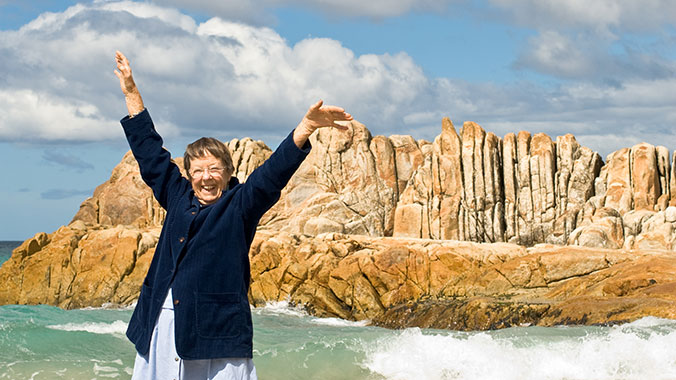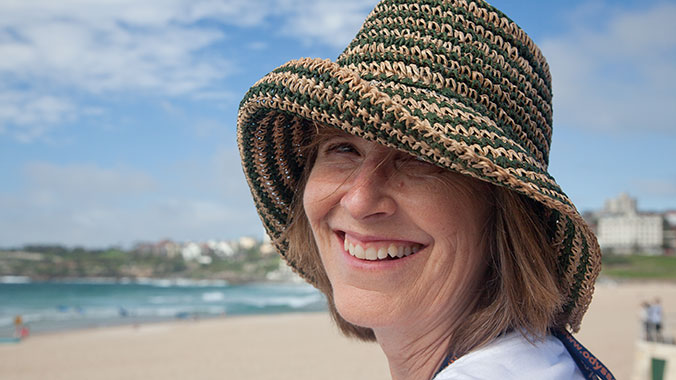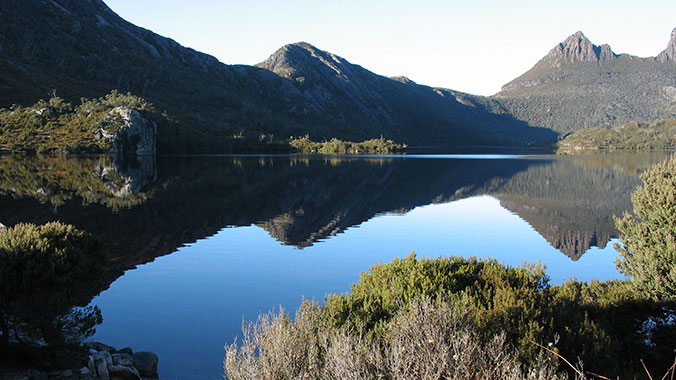Create An Account
Creating an account allows you to enroll in a program, reference your upcoming itinerary, and more.
Create an AccountWalking Australia: From Tasmania to the Great Ocean Road
After you enroll, we’ll ask you to provide or update your personal information and preferences, which includes your health information, lodging and meal preferences for your program.
Visitors to Australia require a passport and an Australian electronic travel authority. The electronic travel authority needs to be secured in advance to allow a visa to be issued upon arrival in Australia.
A passport is required for this program. It must be valid for at least 6 months after your return date.
This information about travel documents pertains to participants holding U.S. passports. Non-U.S. citizens should refer to their country's requirements to ensure they have the necessary documentation for travel.
Australia
Your passport must have 1 blank passport page(s) for entry/exit visas in this country.
A travel visa is required and it must be obtained in advance.
The cost of this visa is not included in the cost of your trip.
Please note: Participants visiting Australia require an electronic travel authority that they must purchase themselves through the Australian ETA app prior to travel. Step-by-step instructions are at https://immi.homeaffairs.gov.au/visas/getting-a-visa/visa-listing/electronic-travel-authority-601#HowTo. There is a $20 service fee for the ETA application.
Australia is a remarkably healthy country to travel in, considering that such a large proportion of it lies in the tropics. Vaccinations are not required for entry unless you have visited an infected country in the past 14 days. Australia reserves the right to isolate any person who arrives without the required certificates. A yellow fever certificate is required from travelers over 1 year of age arriving within 6 days of a visit to any region in any country that has had an instance of yellow fever in the previous 10 years. In Australia it is wise to be wary of Australian spiders, particularly the redback and funnel-web, snakes such as the venomous brown, tiger, death adder, copperhead and red-bellied black varieties and both salt and freshwater crocodiles. Tap water is considered safe to drink, milk is pasteurized and dairy products are safe for consumption. Local meat, poultry, seafood, fruit and vegetables are considered safe to eat. Medical facilities, both public and private, are of a high standard. Doctors and dentists are highly trained and hospitals are well equipped. Medical insurance is strongly recommended for all travelers.
If Road Scholar is arranging your air travel to and from the program, and you travel on the scheduled start and end dates, you’ll receive free round-trip transfers from the airport to the hotel.
Arrival day is on November 2, 2026
Meet the group at Sebel Launceston in Launceston
Start of Trip: 4.00 p.m. central Launceston walk; 5.30 p.m. welcome meeting followed by dinner. 2.00 p.m. hotel check-in.
Getting to the site: Our Launceston hotel is approximately 15 - 20 minutes from Launceston airport. A taxi to the hotel will cost around AU$50. Various rideshare services, such as Uber, are also available.
Your trip ends on: Sunday, November 15, 2026 in Melbourne at Melbourne Marriott Hotel
End of Trip: The program concludes with breakfast; 10.00 a.m. hotel check-out.
Getting to the airport: The easiest and most direct way to get to Melbourne Airport from our final hotel is by taxi. The fare to the airport will be approximately AU$80. Alternatively, SkyBus offers an express bus service from the city centre to the airport. This service operates 24/7, including all public holidays. Buses run every 10 minutes throughout the day. The adult fare is currently AU$24.60 one-way. Tickets can be purchased on arrival at the bus stop. SkyBus provides a hotel transfer service to its depot at Southern Cross Station from where their bus takes you to the airport. This service can be pre-booked at the hotel. Ride share services, such as Uber, are also available.
Information if you are purchasing your own airfare: Participants who have not purchased airfare through Road Scholar are responsible for making their own transfer arrangements to the first site at the beginning of the program, as well as from the last site at the end of the program. The Information Packet Road Scholar sends in advance of the program includes details needed to make your transfer arrangements. If you wish to purchase airfare through Road Scholar, please call (800) 241-1404. Please note: In the unlikely event Road Scholar must make changes to the program's arrival or departure details, we will notify all participants as soon as possible. Participants who have purchased Road Scholar airfare are protected against airline change fees; however, anyone who has not purchased Road Scholar airfare will be required to make their own adjustments and may incur fees imposed by the airline.



